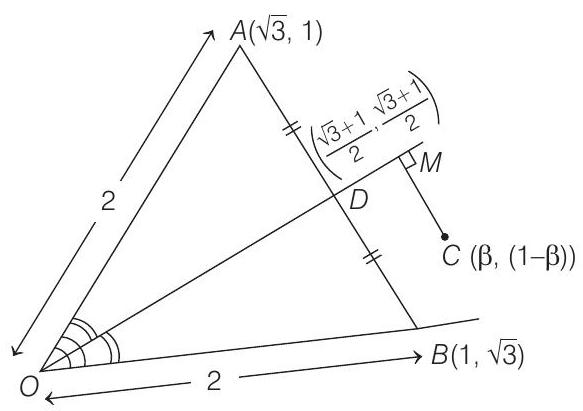3D Geometry 2 Question 3
####3. Let
(2019 Main, 11 Jan II)
(a) 1
(b) 3
(c) 4
(d) 2
Show Answer
Answer:
Correct Answer: 3. (a)
Solution:
- According to given information, we have the following figure.

Clearly, angle bisector divides the sides
Now, equation of bisector
According to the problem,
[Distance of a point
Sum of 2 and -1 is 1 .






